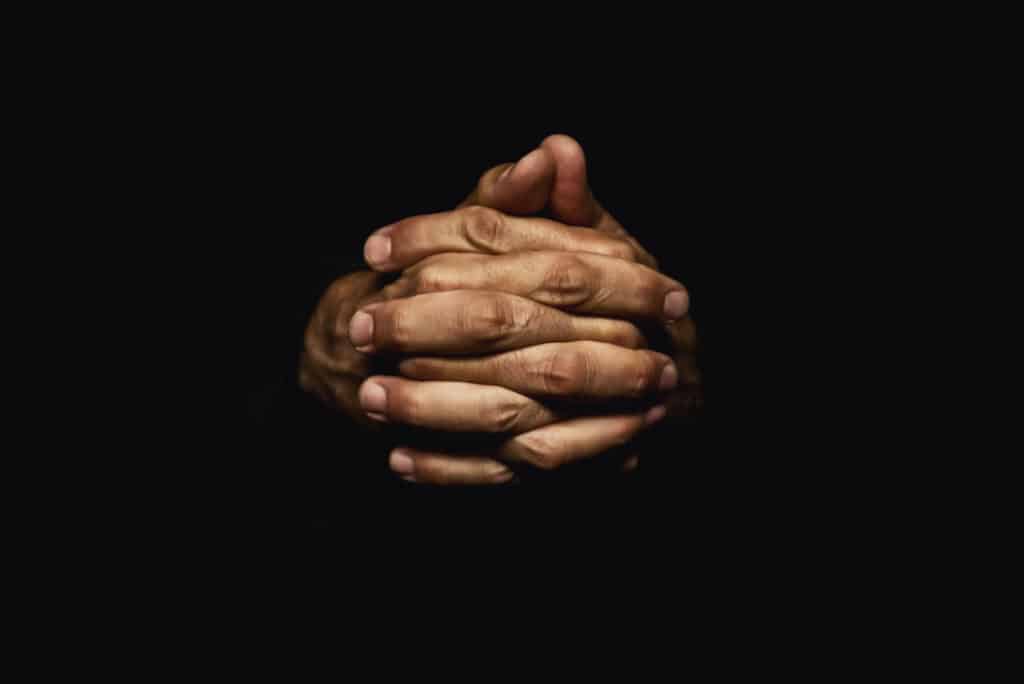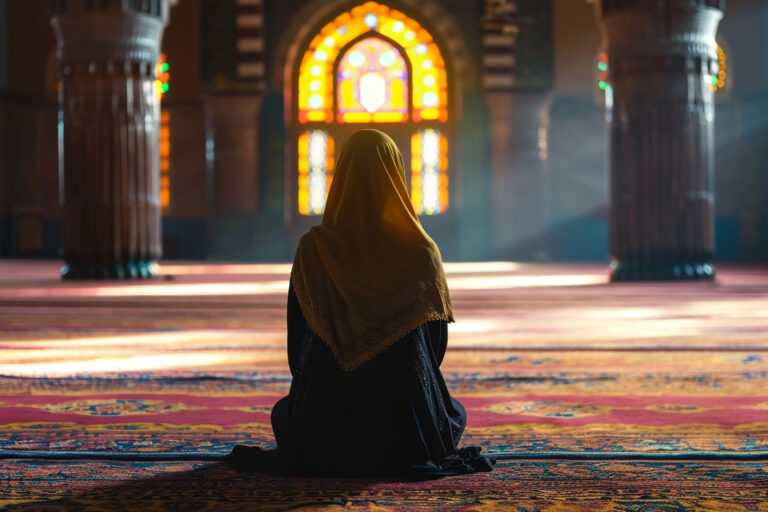August 29, 2025
“No more thoughts and prayers. We need action.”
It’s beyond disturbing how mass shootings have become all too frequent in the U.S. (Even one is too many.) This is why, when politicians think they can reduce the problem through passing legislation, they get frustrated with anyone who offers comforting words, such as, “Sending thoughts and prayers,” but won’t necessarily do anything legislatively. To them, “thoughts and prayers” are just a nice way of kicking the can down the road. Prayer especially strikes them as standing in the way of action, as their quotes below will make clear.
As Christians, what should we make of these statements? Are they treating our prayers as a harmless delusion—or something worse?
In general, many skeptically-oriented people see religion as only a harmless delusion. The dutiful niceness, the hope of a happy afterlife, the ancient rituals—any onlooker can appreciate these. But when might a harmless delusion turn harmful?
Here’s an illustration of harmless turning harmful: When we hear the name “Ghandi,” we typically think of Mahatma but not his wife Kasturba. Religious or not, most people appreciate Mahatma’s ethics of nonviolence. But when he applied those ethics toward Kasturba’s pneumonia—forbidding penicillin because of the violence of puncturing her skin with alien medicine—it likely contributed to her death. Innocuous ethics can turn lethal.
“Many skeptically-oriented people see religion as only a harmless delusion.”
Karl Marx famously called religion an “opium,” something which deadens pain and makes us feel better about misery. Some see opium as basically harmless, but not Marx, who was committed to colossal revolution and classless society. Those humble religious types were standing meekly and maddeningly in the way of the unfolding of history. To Marx, religion was the quintessential harmful delusion.
A delusion-turned-harmful seems the only way to interpret what has become common following a mass shooting: progressives decrying “thoughts and prayers.” The idea seems to be that, even if prayer is usually harmless, to bring up prayer at such a time (e.g., “sending thoughts and prayers”) is to turn it harmful.
Even back in 2019, then-Presidential candidate Kamala Harris wrote, following back-to-back shootings, “No more thoughts and prayers. We need action.”[1] This week, a Minneapolis Catholic school shooting being investigated as a hate crime against Catholics prompted the city’s mayor to exclaim, “Don’t just say this is about thoughts and prayers right now. These kids were literally praying!”[2]
“The idea seems to be that, even if prayer is usually harmless, to bring up prayer at such a time is to turn it harmful.”
Former White House Press Secretary Jen Psaki echoed,
“Prayer is not freaking enough. Prayers does [sic] not end school shootings. Prayers do not make parents feel safe sending their kids to school. Prayer does not bring these kids back. Enough with the thoughts and prayers.”[3]
Feeling anger makes sense in times like these. Frustration, agony, even hatred—we are told to “abhor what is evil” in Romans 12:9—all have their place. Two children dead, over a dozen wounded in the Minnesota shooting. It’s unimaginable the heartbreak parents and siblings of the victims are going through, an empty chair at each table. Again, outbursts, whether on social media or into a microphone, are understandable.
Yet an assumption we ought to question that’s lurking beneath these particular outbursts is that prayer/thoughts on the one hand and action on the other are an either-or—almost like a teeter-totter in which the more prayer, the less action, and vice versa. Apparently, not only do we have to choose between praying to God and doing something, but we’re also supposed to assume that legislation—such as Harris asking Congress for “comprehensive gun reform”—is how we cut through the clutter and actually get things done. It’s true that laws can be tools for bringing justice and maintaining order. But such optimism about legislation, slow and cumbersome and unforeseeably consequential as it regularly is, is little match for the utter “evil and horror and death” it was supposed to have prevented.
“An assumption we ought to question that’s lurking beneath these particular outbursts is that prayer/thoughts on the one hand and action on the other are an either-or.”
Interestingly, those words—“evil and horror and death”—were how Minnesota governor Tim Walz described this week’s school shooting in his state. In his remarks, Walz stayed away from saying “thoughts and prayers,” instead offering, in his words, sympathies and wishes: “. . . our deepest sympathies [and] a wish that any of these words would make what you’re feeling now better, but it won’t.”[4] His colleagues didn’t tweet in response, “Deepest sympathies and wishes aren’t freaking enough,” maybe because he admitted as much, or maybe because they don’t hit a nerve like prayer does. (And to be honest, offers to pray minus tangible engagement will often come across as vacuous as sympathies and wishes.)
So, are we really believing in evil, or no? The point not to be missed here is that, if, as Walz commented, we truly are dealing with “evil and horror and death,” we would be brainless to discourage the action (yes, prayer is an action) that takes us before the only One the supernatural forces of evil are intimidated by, even if only to pray the bitter-yet-biblical prayer of “Why?!” (For a few frustrated “why” prayers, see Genesis 25:22; Exodus 5:22; Numbers 11:11; Judges 6:13; Job 10:18; Psalm 10:1; Psalm 22:1; Isaiah 63:17; Jeremiah 12:1; Habakkuk 1:13.)
There is a sliver of the population that can “do” something about these things—in the razor-thin conception these leaders have of “doing”—and it’s true that they’ll need to debate the merits of fewer or more police, fewer guns for bad people or more guns for good people, and so on. But make no mistake about it—we are all better off if that elite group puts thoughts and prayers into their deliberations.
“We are all better off if that elite group puts thoughts and prayers into their deliberations.”
And when it comes to the rest of us? When there’s a tragedy, it’s a gift of love for us to offer prayers toward God and thoughts toward the situation. With minds conditioned to “scroll, scroll, scroll,” it’s really something when so many of us pause to think and pray. Don’t stop thinking and praying just because hotheaded politicians need somewhere to dump their frustrations.
For that matter, how much more productive are prayerful thoughts and thoughtful prayers than handwringing and hateful thoughts? Chad Ragsdale of Ozark Christian College, in his reflections on “thoughts and prayers,” advises us, first, not to use “thoughts and prayers” as “empty words used to signal virtue,” or to promise “thoughts and prayers” without actually thinking or praying. But if we really are thinking and praying, Ragsdale explains this is the kind of combination that logically leads to less violence. On the other hand,
“When you tell people that prayer is worthless . . . they will start looking for someone to blame, and they will eventually take vengeance into their own hands. Removing ‘thoughts and prayers’ will only lead to more violence, not less.”
“Don’t stop thinking and praying just because hotheaded politicians need somewhere to dump their frustrations.”
A teeter-totter—one side rises, causing the other side to fall—is a dismal analogy for faith and works. C. S. Lewis got us much closer to the mark when he used the metaphor of a pair of scissors: both blades, faith and works, are needed to do the job. And New Testament writer James is most helpful of all, when he uses the metaphor of dead or alive faith. We who pray and think are best positioned to go and do.
So, for starters, can we pause, turn our thoughts to the families reeling in Minneapolis and go to God on their behalf?
Our Father in heaven, draw close to the brokenhearted. Save those who are crushed in spirit . . .
[1] Kamala Harris, “No More Thoughts and Prayers,” Medium, August 4, 2019, https://kamalaharris.medium.com/no-more-thoughts-and-prayers-a485a51718f6.
[2] Michelle Del Rey, “Mayor Gives Emotional Speech After Minneapolis Shooting. Read His Full Message,” USA Today, August 28, 2025, https://www.usatoday.com/story/news/nation/2025/08/28/minneapolis-mayor-jacob-frey-shooting-full-speech/85864380007/.
[3] Brett Samuels, “Leavitt Slams ‘Insensitive’ Psaki on Prayer Comments after Minnesota Shooting,” The Hill, August 28, 2025, https://thehill.com/homenews/5475612-psaki-frey-dispute-thoughts-prayers/.
[4] Tim Walz, “Gov. Walz ‘Will Stand with This Community’ after Shooting,” NBC News, August 27, 2025, https://www.nbcnews.com/video/minnesota-gov-tim-walz-reacts-to-fatal-church-shooting-245897797558.











